
ELISA Kits
- • Anemia ELISA kits
- • Allergy ELISA kits
- • Autoimmune Disease kits
- • Bone Metabolism ELISA kits
- • Blood bank ELISA kits
- • Cancer ELISA kits
- • Cardiac Markers ELISA kits
- • Diabetes Assays ELISA kits
- • Drug test ELISA kits
- • Fertility ELISA kits
- • Food ELISA kits
- • Infectious Disease ELISA kits
- • Other ELISA Kits
- • Parasitology ELISA kits
- • Steroid ELISA kits
- • Thyroid ELISA kits
Rapid Tests
- • Allergy Rapid tests
- • Bone Metabolism
- • Cancer Rapid tests
- • Cardiac markers Rapid tests
- • Drug Tests
- • Fertility Rapid tests
- • Hepatitis Panel
- • Infectious Disease & other tests
- • Other
- • Ovulation Rapid tests
- • Pregnancy tests
- • Urine Reagent Strips tests
IFA Kits
Chemiluminescence Immuno Assays
- • Allergy Assays
- • Autoimmune Thyroid Assays
- • Cardio-Vascular Monitoring
- • Diabetes Assays
- • Fertility Assays
- • Growth Deficiency
- • Infectious Disease Assays
- • Others
- • Steroid Assays
- • Thyroid Assays
- • Tumor Marker Assays
Serology Tests
- • ASO (Anti-Streptolysin-O)
- • CRP (C-Reactive Protein)
- • Mono (Infectious Mononucleosis)
- • RF (Rheumatoid Factor)
- • RPR (Rapid Plasma Reagin)
- • SLE (Systemic Lupus Erythematosus)
Instrumentation



Rapid (PCP) Phencyclidine Drug test (Cassette)
| Name |
Phencyclidine Urine Rapid Test (Cassette) RapiCard� InstaTest |
|---|---|
| Category Name | Drug Tests |
| Test | Bulk Or Boxed in 25 or 50 tests |
 |
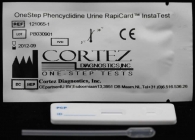 |
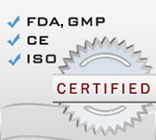 |
Rapid (PCP) Phencyclidine Drug test (Cassette) description:
This PCP Drug Test, or The Cortez Diagnostics, Inc. DOA (Drug of Abuse) test, is an immunochromatography based one step in vitro test. The PCP Drug Test is designed for qualitative determination of PCP drug substances in human urine specimens. This assay may be used in the point of care setting.
Phencyclidine, commonly known as PCP, is an hallucinogen drug which interacts with dopamine, cholinergic and adrenergic systems. The PCP drug has dose dependent stimulant, depressant, hallucinogenic and psychological effects. The PCP drug is mostly ingested orally or intravenously. Even moderate amounts of the PCP drug, from 5 to 100 ng/ml, can result in psychotic, violent and self-destructive behavior. At high doses, from 100 to 500 ng/ml, the PCP drug can cause convulsions, hypertension, prolonged coma, absent peripheral sensation, and even death. The PCP drug is metabolized via hydroxylation, oxidation, and conjugation with glucuronic acid in the liver. About 10% of the PCP drug dose is excreted in urine as unchanged PCP drug. For chronic users, the PCP drug can be detected in the urine for 7 to 8 days after drug ingestion.
The PCP Drug Testing device is based on the principle of specific immunochemical reaction between antibodies and antigen to analyze particular compound in human urine specimen. The assay relies on the competition for binding antibody between drug conjugate and free drug which may be present in the urine specimen being tested. When the PCP drug is present in the urine specimen, it competes with drug conjugate for the limited amount of antibody-dye conjugate. When the amount of the PCP drug is equal or more than the cut-off, it will prevent the binding of drug conjugate to the antibody. Therefore, a positive urine specimen on the PCP Drug test will not show a colored band on the test line zone, indicating a positive result, while the presence of a colored band indicates a negative result. A control line is present in the test window to work as procedural control. This colored band should always appear on the control line zone if the PCP drug testing device is stored in good condition and the PCP drug test is performed appropriately.
The PCP Drug Test provides only a preliminary analytical test result. A more specific alternative chemical method must be used in order to obtain a confirmed analytical result to detect the PCP drug. Gas chromatography/ mass spectrometry (GC/MS) has been established as the preferred confirmatory method by the Substance Abuse Mental Health Services Administration (SAMHSA). Clinical consideration and professional judgment should be applied to any drug of abuse test result, particularly when preliminary positive results are indicated.
The optional built-in Adulteration Test is for validation of urine specimen’s integrity. The cutoff level for this PCP Drug Test is 25 ng/ml of phencyclidine. For customized cutoff level PCP drug tests, please contact Customer Service. This PCP Drug Test is available in multi-panel, cassette, strip, or cup format.
This PCP Drug Test, or The Cortez Diagnostics, Inc. DOA (Drug of Abuse) test, is an immunochromatography based one step in vitro test. The PCP Drug Test is designed for qualitative determination of PCP drug substances in human urine specimens. This assay may be used in the point of care setting.
Phencyclidine, commonly known as PCP, is an hallucinogen drug which interacts with dopamine, cholinergic and adrenergic systems. It has dose dependent stimulant, depressant, hallucinogenic and psychological effects. The PCP drug is mostly ingested orally or intravenously. Even moderate amounts of the PCP drug, from 5 to 100 ng/ml, can result in psychotic, violent and self-destructive behavior. At high doses, from 100 to 500 ng/ml, the PCP drug can cause convulsions, hypertension, prolonged coma, absent peripheral sensation, and even death. The PCP drug is metabolized via hydroxylation, oxidation, and conjugation with glucuronic acid in the liver. About 10% of the PCP drug dose is excreted in urine as unchanged PCP drug. For chronic users, the PCP drug can be detected in the urine for 7 to 8 days after drug ingestion.
Each component cassette of these drug testing kits is based on the principle of specific immunochemical reaction between antibodies and antigen to analyze particular compound in human urine specimen. The assay relies on the competition for binding antibody between drug conjugate and free drug which may be present in the urine specimen being tested. When the PCP drug is present in the urine specimen, it competes with drug conjugate for the limited amount of antibody-dye conjugate. When the amount of the PCP drug is equal or more than the cut-off, it will prevent the binding of drug conjugate to the antibody. Therefore, a positive urine specimen on the PCP Drug test will not show a colored band on the test line zone, indicating a positive result, while the presence of a colored band indicates a negative result. A control line is present in the test window to work as procedural control. This colored band should always appear on the control line zone if the PCP testing device is stored in good condition and the PCP drug test is performed appropriately.
The PCP Drug Test provides only a preliminary analytical test result. A more specific alternative chemical method must be used in order to obtain a confirmed analytical result to detect the PCP drug. Gas chromatography/ mass spectrometry (GC/MS) has been established as the preferred confirmatory method by the Substance Abuse Mental Health Services Administration (SAMHSA). Clinical consideration and professional judgement should be applied to any drug of abuse test result, particularly when preliminary positive results are indicated.
The optional built-in Adulteration Test is for validation of urine specimen’s integrity and must not be used for In Vitro diagnostic use. The cutoff level for this PCP Drug Test is 25 ng/ml of phencyclidine. For customized cutoff level PCP drug tests, please contact Customer Service. This PCP Drug Test is available in multi-panel, cassette, strip, or cup format. Additional drug and rapid diagnostic tests are available.
ELISA kits - Rapid tests- Drug tests- Pregnancy test - IFA kits - CLIA assays - Serology tests - Instrumentation
©1992 Diagnostic Automation/Cortez Diagnostics Inc. All rights reserved.


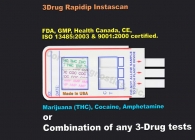 3-Panel Drug Test (Strip) (AMP, MOR, THC)
3-Panel Drug Test (Strip) (AMP, MOR, THC)
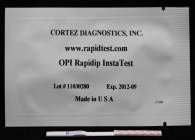 Rapid (OPI-MOR-HER) Opiates-Heroin-Morphine Drug Test (Strip)
Rapid (OPI-MOR-HER) Opiates-Heroin-Morphine Drug Test (Strip)
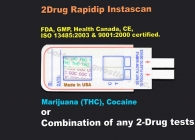 2-Panel Drug Test (Strip) (MOR,THC)
2-Panel Drug Test (Strip) (MOR,THC)
 3-Panel Drug Test (Strip) (BAR, BZD, PCP)
3-Panel Drug Test (Strip) (BAR, BZD, PCP)
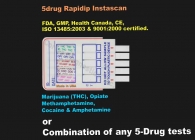 5-Panel Drug Test (Strip)(THC, PCP, MOR, COC, AMP)
5-Panel Drug Test (Strip)(THC, PCP, MOR, COC, AMP)








